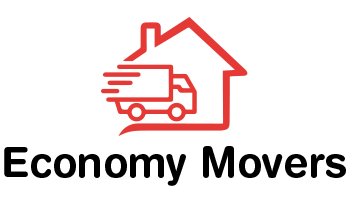
Best Practices for Bookkeeping in the Moving Industry
Maintaining accurate financial records is crucial for the success of any business and moving industry is no exception. Effective bookkeeping practices not only ensure compliance with regulatory requirements but also provide valuable insights into the financial health of the company.
This article explores the best practices for bookkeeping specifically tailored to the unique needs of moving companies, covering key aspects such as categorizing expenses, tracking revenue streams, managing invoices, and reconciling accounts.
1. Categorizing Expenses
Categorizing expenses accurately is essential for tracking where money is being spent and for budgeting purposes.
In the moving industry, expenses can vary widely, including fuel costs, vehicle maintenance, equipment purchases, insurance premiums, and labor expenses, hence, consider it wise to outsource the task to the bookkeepers like iKeep. To effectively categorize expenses:
- Utilize accounting software: Implement accounting software that allows for easy categorization of expenses. Many modern accounting platforms offer customizable expense categories tailored to specific industries, including moving companies.
- Create specific expense categories: Develop a detailed list of expense categories relevant to the moving industry, such as transportation costs, packing materials, storage fees, and subcontractor payments. Be consistent in assigning expenses to the appropriate categories to maintain accuracy.
- Regularly review and update categories: Periodically review expense categories to ensure they align with the evolving needs of the business. Adjust categories as necessary to accurately reflect the company’s spending patterns.
2. Tracking Revenue Streams
Tracking revenue streams is essential for understanding the sources of income and assessing the profitability of different services offered by the moving company. To effectively track revenue streams:
![]()
- Implement a robust invoicing system: Develop a standardized invoicing system to accurately record revenue from each job or service provided. Include detailed information such as service descriptions, dates, rates, and payment terms on invoices.
- Use accounting software to track income: Leverage accounting software to track income from various sources, including residential moves, commercial moves, packing services, storage rentals, and specialty moving services. Utilize separate income accounts for each revenue stream to facilitate analysis.
- Monitor payment statuses: Regularly monitor payment statuses for outstanding invoices and follow up with clients promptly to ensure timely payment. Implement procedures for tracking payments received and reconciling them with invoiced amounts.
3. Managing Invoices
Efficient management of invoices is essential for maintaining cash flow and ensuring timely payments from clients. To effectively manage invoices:
- Establish clear invoicing policies: Develop clear policies regarding invoicing procedures, including payment terms, late fees, and accepted payment methods. Communicate these policies to clients upfront to avoid misunderstandings.
- Automate invoice generation: Implement automation tools or accounting software features to streamline the invoicing process. Set up recurring invoices for repeat clients or services to save time and reduce administrative burden.
- Send timely reminders for overdue invoices: Implement a system for sending automated reminders to clients with outstanding invoices. Clearly communicate payment deadlines and consequences for late payments to encourage timely settlement.
4. Reconciling Accounts
Regularly reconciling accounts ensures that the company’s financial records accurately reflect its true financial position. To effectively reconcile accounts:

- Conduct regular bank reconciliations: Compare the company’s bank statements with its accounting records to identify any discrepancies or errors. Reconcile any differences promptly to ensure the accuracy of financial reporting.
- Verify transactions against supporting documentation: Match each transaction in the company’s accounting records with supporting documentation, such as invoices, receipts, and bank statements. Investigate and resolve any discrepancies or missing records promptly.
- Review financial reports for accuracy: Generate and review financial reports, such as profit and loss statements and balance sheets, to assess the company’s financial performance. Verify that all transactions are accurately recorded and classified in the appropriate accounts.
5. Regulatory Compliance and Tax Considerations
Operating a moving company entails compliance with various regulations and tax requirements. Understanding and adhering to these regulations is essential for avoiding penalties and maintaining the company’s reputation. Additionally, optimizing tax strategies can help minimize liabilities and maximize savings. Here are key areas to consider:
- Licensing and Permits: Moving companies are typically required to obtain licenses and permits from regulatory authorities at the local, state, and federal levels. These licenses and permits may vary depending on the jurisdiction and the types of services offered. Ensure compliance with all applicable licensing and permit requirements to operate legally.
- Insurance Requirements: Moving companies often need to maintain adequate insurance coverage to protect against liabilities arising from property damage, bodily injury, and other risks associated with moving services. Understand the insurance requirements specific to the moving industry and ensure appropriate coverage is in place.
- Labor Laws and Regulations: Compliance with labor laws and regulations is critical for moving companies employing staff or subcontractors. Ensure compliance with wage and hour laws, worker safety regulations, and other labor standards to avoid legal issues and maintain a safe working environment.

- Tax Planning and Compliance: Implement tax planning strategies to minimize tax liabilities and take advantage of available deductions and credits. Work with a qualified accountant or tax advisor to optimize tax planning efforts and ensure compliance with tax laws and regulations. Consider tax implications related to income, expenses, depreciation, and employee benefits.
- Industry-Specific Regulations: Be aware of any industry-specific regulations that may apply to moving companies, such as rules governing the transportation of hazardous materials, vehicle weight limits, or customer rights and responsibilities. Stay informed about regulatory changes and updates affecting the moving industry.
Conclusion
Effective bookkeeping is a cornerstone of success in the moving industry to achieve long-term success and position themselves for growth and profitability in a competitive market.
By implementing best practices such as categorizing expenses, tracking revenue streams, managing invoices, and reconciling accounts, moving companies can maintain accurate financial records, make informed business decisions.



